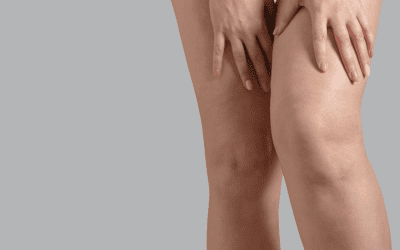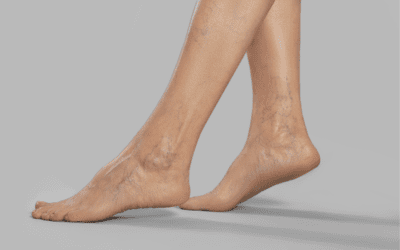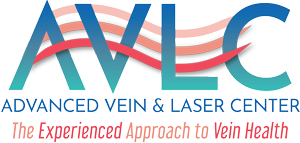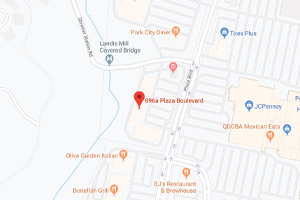| Restless Leg Syndrome (RLS) can be a frustrating and disruptive condition, but understanding its triggers and implementing effective management strategies can greatly improve your quality of life. By identifying surprising triggers such as varicose veins and vein insufficiency, you can take steps to minimize the impact of RLS. Consult with Advanced Vein and Laser Center for an accurate diagnosis and personalized treatment plan. |
Restless Leg Syndrome (RLS) is a neurological disorder that affects millions of people worldwide. Characterized by uncomfortable sensations in the legs and an irresistible urge to move, RLS can significantly disrupt sleep and daily activities.
In this blog post, we will explore these triggers, offer insights into managing RLS symptoms, and discuss available treatment options.
What is Restless Legs Syndrome?
Restless Leg Syndrome is a neurological condition characterized by uncomfortable sensations in the legs, often described as crawling, tingling, itching, or aching.
These sensations typically occur when the body is at rest, especially during the evening or nighttime, and are temporarily relieved by movement. The urge to move the legs can be overwhelming, causing significant sleep disturbances and discomfort.
What Causes Restless Leg Syndrome?
The exact cause of Restless Leg Syndrome (RLS) is not fully understood. However, research suggests that a combination of genetic, neurological, and environmental factors may contribute to its development. Here are some potential causes and factors associated with RLS:
1. Varicose Veins
Varicose veins are enlarged, twisted veins that occur from throttled blood flow in the legs. The compromised circulation and nerve irritation associated with varicose veins can contribute to the onset or worsening of restless leg syndrome symptoms in susceptible individuals. Read more about the relationship between RLS & vein disease.
2. Genetic Factors
RLS tends to run in families, indicating a genetic component. Certain gene variants have been linked to an increased risk of developing RLS. However, more research is needed to fully understand the genetic mechanisms involved.
3. Iron Deficiency
Iron plays a crucial role in the production of dopamine in the brain. Low iron levels or iron deficiency can disrupt dopamine function and may contribute to the development or worsening of RLS symptoms. Iron supplementation or addressing underlying iron deficiency can sometimes improve RLS symptoms.
4. Pregnancy
RLS commonly occurs during pregnancy, particularly in the third trimester. Hormonal changes and alterations in iron metabolism during pregnancy are thought to play a role in triggering RLS symptoms. The symptoms typically resolve after childbirth.
5. Medications and Substances
Some medications have been reported to trigger or worsen RLS symptoms. Examples include antidepressants, antipsychotics, antihistamines, and certain anti-nausea drugs. Substances like caffeine and alcohol may also exacerbate symptoms in some individuals.
6. Nerve Damage or Dysfunction
Nerve damage or dysfunction in the legs or lower extremities can contribute to RLS symptoms. Conditions such as spinal cord lesions, nerve compression, or peripheral neuropathy may be associated with RLS.
It’s important to note that while these factors have been identified as potential contributors to RLS, not all individuals with RLS will have the same underlying causes. RLS is a complex disorder, and further research is needed to fully understand its pathophysiology and the interplay of different factors. If you suspect you have RLS, it is recommended to consult with a healthcare professional for an accurate diagnosis and appropriate management strategies.
However, the course of RLS can vary from person to person. Some individuals may experience periods of remission or find that their symptoms improve over time, while others may have persistent or progressive symptoms throughout their lives.
It is worth noting that RLS symptoms can fluctuate in severity, with periods of relative relief and periods of increased symptoms. Factors such as stress, medication changes, sleep disturbances, and certain triggers can influence the frequency and intensity of RLS symptoms.
When Should I Be Worried About Restless Legs?
While RLS is generally a harmless condition, there are certain situations where medical attention should be sought:
- Increasing severity or frequency of symptoms.
- Symptoms spread to other body parts.
- Symptoms interfering with daily activities and sleep.
- Development of additional neurological symptoms.
How Should You Sleep With Restless Legs?
Finding a comfortable sleep position can be challenging when dealing with RLS. However, these tips may help improve your sleep quality:
- Elevate your legs: Place a pillow or cushion under your legs to elevate them slightly while sleeping.
- Relaxation techniques: Engage in relaxation exercises like deep breathing, meditation, or progressive muscle relaxation before bed to calm your body and mind.
- Optimal sleep environment: Create a sleep-friendly environment by keeping your bedroom cool, dark, and quiet. Use comfortable bedding and invest in a supportive mattress and pillow.
How Do I Overcome Restlessness at Night?
Proper management of RLS can help alleviate symptoms and improve quality of life. Lifestyle modifications, such as regular exercise, maintaining a balanced diet, avoiding triggers like caffeine and alcohol, and practicing good sleep hygiene, can be effective in managing RLS symptoms.
In some cases, medications may be prescribed to help control symptoms and improve sleep. To overcome restlessness due to RLS, consider implementing these strategies:
- Establish a bedtime routine: Consistency and relaxation are key. Follow a consistent sleep schedule and incorporate relaxing activities before bed, such as reading a book or taking a warm bath.
- Create a calm environment: Minimize noise, light, and distractions in your bedroom. Use blackout curtains, earplugs, or white noise machines if needed.
- Cognitive behavioral therapy (CBT): CBT techniques can help manage the anxiety and frustration associated with RLS. Seek professional guidance to learn coping mechanisms and relaxation strategies.
How Long Does Restless Leg Syndrome Last?
Restless Leg Syndrome is a chronic condition with no cure. However, the severity of symptoms can vary from person to person, and some individuals may experience remission periods.
Managing triggers, adopting healthy habits, and following a treatment plan can help alleviate symptoms and improve quality of life.
What Makes Restless Legs Worse?
Certain factors can exacerbate RLS symptoms:
- Stress and anxiety: Emotional stress and anxiety can intensify RLS symptoms. Practice stress-management techniques, such as meditation or yoga, to reduce their impact.
- Lack of sleep: Poor sleep quality or insufficient sleep can worsen RLS symptoms. Prioritize good sleep hygiene practices and create a comfortable sleep environment.
- Excessive sitting or inactivity: Prolonged sitting or inactivity can increase discomfort and restlessness in the legs. Incorporate regular movement breaks throughout the day to alleviate symptoms.
Seek Treatment From The Leading Vein Specialists in York & Lancaster, PA.
At every stage of your vein issues, it’s important to see a professional to help you heal restless leg syndrome and achieve a life of normalcy and physical comfort.
Not only can they help you finally heal this condition, but they can also treat the vein issues that caused them in the first place. Visit one of our centers for an in-depth appointment and put your vein troubles to rest. Ready to book your appointment? Give us a call today.

Dr. Steven Heird, MD, is a distinguished specialist in the treatment of venous disease and vascular surgery. As one of the dedicated doctors at the Advanced Vein and Laser Center, located in York and Lancaster, Pennsylvania, Dr. Heird has made a significant impact in the field of vein care. His expertise and commitment to patient well-being have earned him a trusted reputation among his peers and patients. Dr. Heird’s work at the Advanced Vein and Laser Center reflects his passion for providing compassionate and effective vein care, improving the lives of those he serves with precision and care.








0 Comments